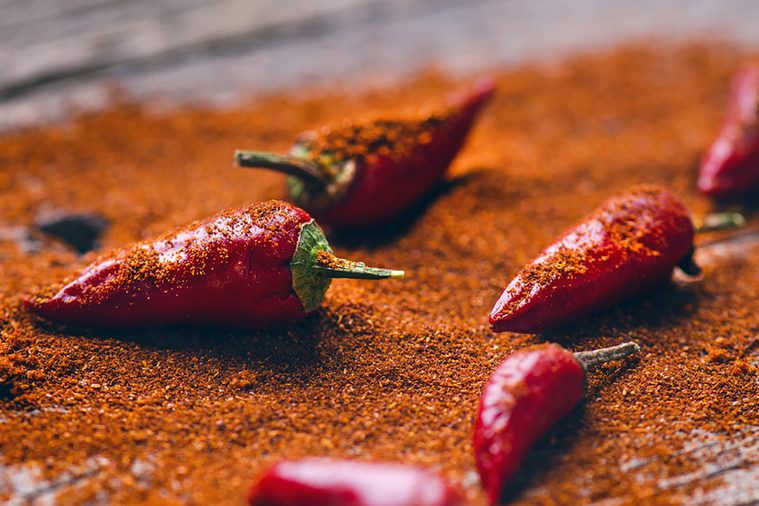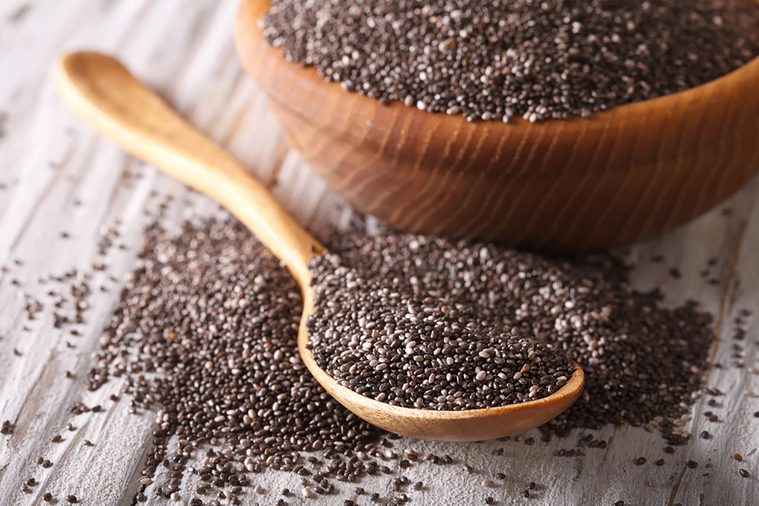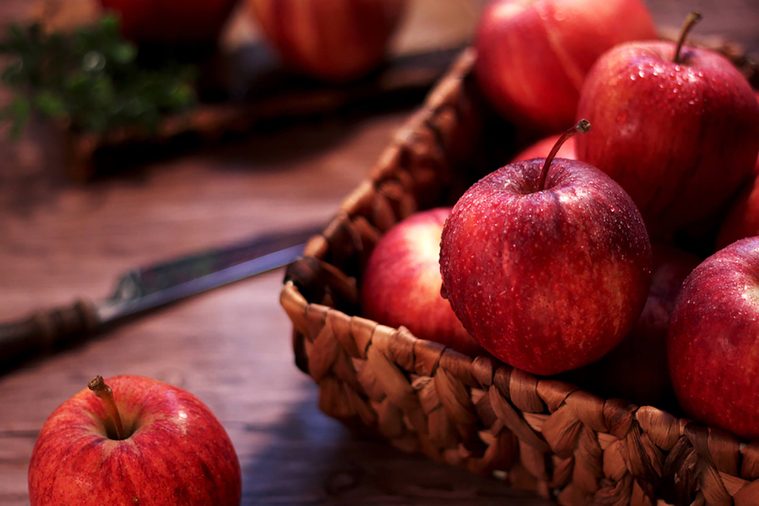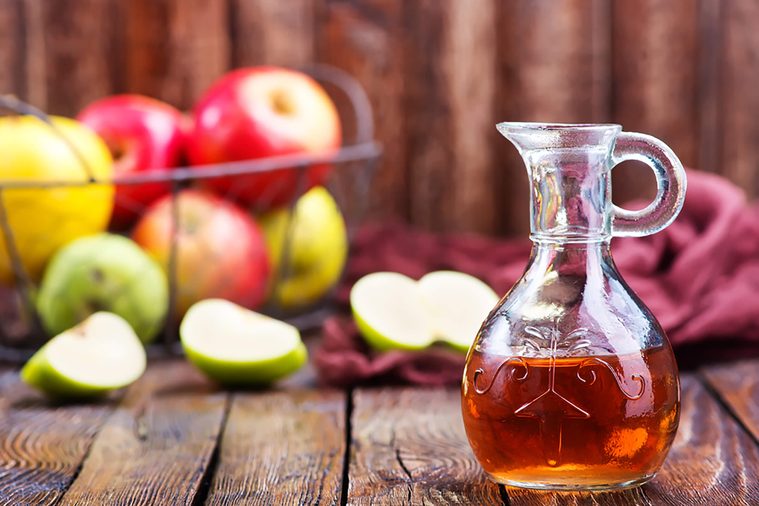
Spice it up
An appetite for spicy food may say certain things about your personality—but more importantly, spicy foods may act as natural appetite suppressants. The active ingredient in many spicy foods is capsaicin, which is found in hot peppers. Cayenne peppers have other health benefits too. As a bonus, “adding a few dashes of the spicy stuff will slow down your eating,” which could lead to your eating less overall, says New York City-based nutritionist Joy L. Bauer, RD, CDN, the founder of Nourish Snacks, the health and nutrition expert on The Today Show, and author of several books including From Junk Food to Joy Food.

Sniff peppermint
A whiff of peppermint may keep hunger at bay. “A study found that when participants smelled peppermint every two hours for five days, they consumed nearly 1,800 fewer total calories that week and rated their hunger level significantly lower than participants not exposed to peppermint,” Bauer says. She suggests lighting a peppermint candle, chewing on peppermint gum, or sipping on peppermint tea to get the appetite-suppressing benefits.

Add chia seeds as a topping
Chia seeds are chock-full of fiber, and can therefore be a great appetite suppressant, Bauer says. “Sprinkle chia seeds on oatmeal or yogurt, or toss them into smoothies and pancake batter,” she suggests. “They’ll swell in your stomach—up to nine times their size—to keep you feeling full for hours.” Healthful chia seeds are largely soluble fiber, which has been associated with reduced intake and appetite. Other smart sources of soluble fiber include legumes, oats, asparagus, and flaxseed.

Eat an apple a day
Think you know everything about apples and health? Think again. It turns out that eating an apple a day may do more than keep the doctor away; an apple may serve as a natural appetite suppressant. “The combination of pectin, soluble fiber, high water content, and lots of chewing make apples an excellent appetite-taming food,” Bauer says. Plus, these appetite suppressants are portable and portion-controlled, making them an all-around home run, she says.

Drink up
Drinking two glasses of water before each meal helps to tame your appetite, says Bauer. “If water bores you, jazz it up by adding slices of citrus or cucumbers—or a shot of fruit juice,” she suggests. Bonus: “If you swap in seltzer water, the bubbles create an even greater sensation of fullness.” Another way to hydrate is to crunch on water-rich veggies—lettuce, cucumbers, radishes, zucchini, and celery. “With more than 95 percent water, these five filler-uppers will keep your appetite in check.”

Breathe more
When you are stressed, your body kicks up production of the hormone cortisol. “High levels of cortisol can lead to an accumulation of abdominal fat as well as other chronic health problems,” says New York City nutritionist Keri Glassman, MS, RD, CDN, the founder of Nutritious Life. Cortisol also causes the body to form a resistance to leptin—a hormone that sends the signal to the brain that you are full, she says. “The more stressed you are, the more cortisol you secrete, and the less able you are to tell when you are full.” There’s more to it too, she says. “During times of stress, we tend to crave high sugar, high carbohydrate foods that produce serotonin and make us feel calm and in control. So, reducing stress will help reduce these cravings.” She suggests carving out a few minutes to practice deep breathing each day. “Close your eyes, clear your mind, and breathe slowly in through your nose and out through your mouth,” she says.

Do a shot
Of vinegar or apple cider vinegar, that is. It may serve as an appetite suppressant, although the studies are mixed. One study suggests that it is apple cider vinegar’s unpleasant taste that causes our appetite to cease fire. Participants who drank vinegar with breakfast ate less than their counterparts who didn’t. The reason? They were nauseated. Decide for yourself whether appetite suppressants like that are worth it.

Exercise before dinner
While a full day of physical labor might leave you famished, a shorter intense workout might have the opposite effect. One analysis of 20 studies found that exercise suppressed the “hunger hormone” acylated ghrelin while boosting levels of hormones that act as appetite suppressants. Wrap up your gym session right before a meal so that you don’t tempt yourself into eating so much that you negate your workout.

Pay attention to your food
Mindfulness can have a slew of benefits, from pain management to stress reduction, and you can add appetite suppression to the list. Mindful eating techniques could help control emotional eating and binge eating, according to a 2014 review of studies. During every bite, take note of the food’s taste, texture, and smell while also paying attention to your body’s fullness cues. You just might find you don’t need a second helping after all. Don’t miss these other 50 easy ways to lose weight naturally.

